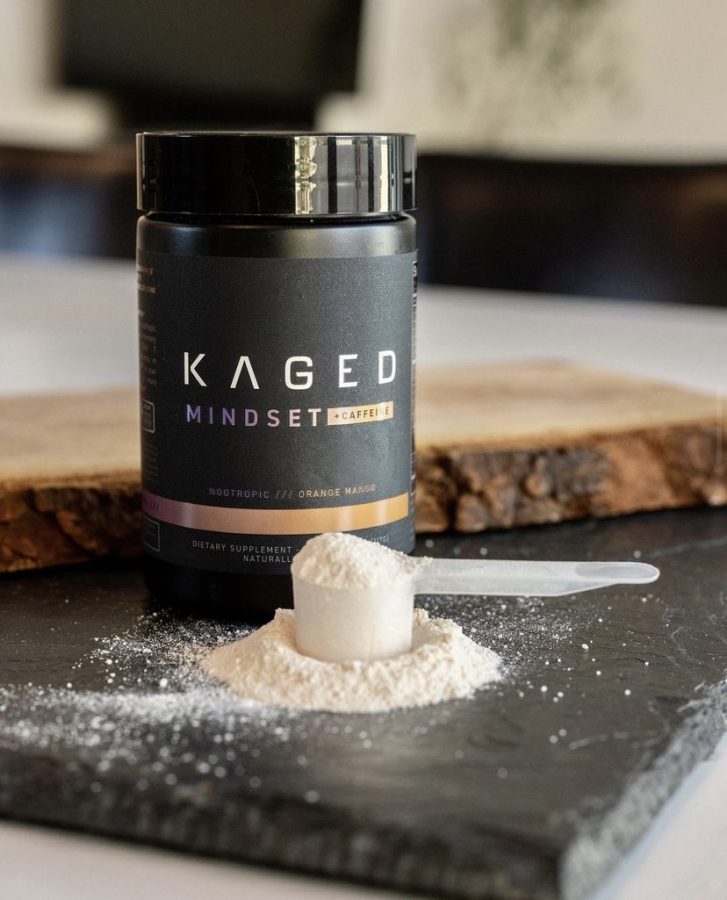Swanson: Is Pre-Workout a Problem?
Pre-Kaged calls its product “the ultimate pre-workout to provide the best focus, pump, and stamina in the gym.”
February 27, 2023
WOODBURY — Some people stay hydrated to improve their endurance when exercising, while others choose to drink coffee to boost their energy. Some people use pre-workout supplements as an alternate source of energy.
Pre-workout is used to enhance athletic performance by boosting energy levels and improving strength and endurance.
“There are many different types of pre-workout,” Nonnewaug athletic trainer Sean McGee said. “Depending on your pre-workout might depend on what it does to your body. Most pre-workouts have a lot of caffeine — more than two cups of coffee. It’s basically a stimulant to increase your heart rate and blood pressure, making you more alert.”
But pre-workout can be more complex than that.
“Some pre-workouts also have chemicals that will cause vasodilatation of your blood vessels, making it easier for oxygen to go to structures and other tissues,” McGee continued. “Some chemicals may also reduce fatigue in the muscle tissues, as well. Some pre-workouts have BCAA [amino acids] which help with protein synthesis [building]. Some pre-workouts also have creatine, which can improve performance and help with protein synthesis. It can be addicting to take this supplement, almost like an energy drink. It is not recommended to take pre-workout daily, but [it’s] OK to take it in moderation. A lot of pre-workouts are not FDA-approved, which could potentially be harmful.”
So why take the risks associated with pre-workout? Nonnewaug senior Zack Hellwinkle says the benefits outweigh any addiction.
“I think I fell into the idea that pre-workout was good, and I can’t stop now,” Hellwinkle said. “The first time I used pre-workout, my energy was really good. After a while, it just made me feel normal due to the caffeine. However, there are ingredients that increase muscle endurance and your pump, making it worth it to me.”
Since it is such an easy way to get energy so quickly, it’s very easy to get hooked.

“Pre-workout can be an addiction like any other stimulant,” McGee said. “If someone were to take pre-workout daily and then go off of it, they will have a more difficult time working out. Since their body is so used to taking a supplement like this, it can cause side effects such as headaches, fatigue, high blood pressure, and others at a resting state. Their performance will decrease drastically when not on pre-workouts.”
McGee’s points are valid, although Nonnewaug senior Diego Razo thinks differently.
“So let’s say you go to school without shoes — what would happen?” Razo said. “You would be uncomfortable, right? You don’t need shoes, but it helps. It’s the same thing with pre-workout. You shouldn’t depend on it. It gives me a lot of energy and helps me get through the workout.”
Some people choose to not take workouts because the risk is not worth the result.
“I choose to not take pre-workout because, in my opinion, it is bad for you. Pre-workout contains high amounts of caffeine that can increase heart rate and can cause jitteriness and nausea if enough is taken,” said Carley Shook, a Nonnewaug senior. “Personally, I would rather not use pre-workout so I know that I can complete my exercises without the help of a supplement. Overall in the long run, pre-workout can increase the chances of a heart attack and in general, it’s not good for your body to be consuming on a daily basis.”
This is the opinion of Chief Advocate sports reporter Christian Swanson.



















